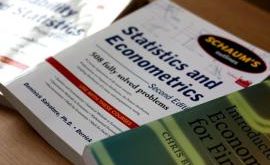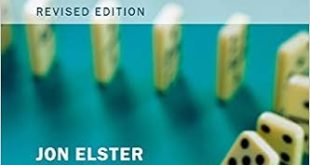Applied econometrics — a messy business Do you believe that 10 to 20% of the decline in crime in the 1990s was caused by an increase in abortions in the 1970s? Or that the murder rate would have increased by 250% since 1974 if the United States had not built so many new prisons? Did you believe predictions that the welfare reform of the 1990s would force 1,100,000 children into poverty? If you were misled by any of these studies, you may have fallen for a...
Read More »Feynman’s trick (student stuff)
Feynman’s trick (student stuff) .[embedded content]
Read More »Difference in Differences (student stuff)
Difference in Differences (student stuff) .[embedded content]
Read More »Vad ALLA bör veta om statistik
Vad ALLA bör veta om statistik Även om man inte själv har tänkt sig producera statistik, bör alla som ägnar sig åt akademiska studier i någon form ha nog kunskaper för att förstå och värdera statistik på ett korrekt sätt. Fallgroparna är många. Den här boken hjälper med förtjänstfull pedagogisk handledning att få läsaren att undvika dessa.
Read More »Data analysis for social sciences (student stuff)
Data analysis for social sciences (student stuff) .[embedded content] When I teach statistics, I always try to recommend good supplementary material on YouTube to my students. This is a good example.
Read More »20 Best Econometrics Blogs and Websites in 2024
20 Best Econometrics Blogs and Websites in 2024 Yours truly, of course, feels truly honoured to find himself on the list of the world’s 20 Best Econometrics Blogs and Websites. 1. The Stata Blog 3. Cambridge Econometrics Blog 9. How the (Econometric) Sausage is Made 14. Lars P Syll Pålsson Syll received a PhD in economic history in 1991 and a PhD in economics in 1997, both at Lund University. He became an associate professor in economic history in 1995 and...
Read More »Econometrics — a second-best explanatory practice
Econometrics — a second-best explanatory practice While appeal to R squared is a common rhetorical device, it is a very tenuous connection to any plausible explanatory virtues for many reasons. Either it is meant to be merely a measure of predictability in a given data set or it is a measure of causal influence. In either case it does not tell us much about explanatory power. Taken as a measure of predictive power, it is limited in that it predicts...
Read More »Potential outcomes and regression (student stuff)
Potential outcomes and regression (student stuff) .[embedded content]
Read More »The 20 Best Econometrics Blogs and Websites
The 20 Best Econometrics Blogs and Websites Yours truly, of course, feels truly honoured to find himself on the list of the world’s 20 Best Econometrics Blogs and Websites. 1. The Stata Blog 2. Bruno Rodrigues 7. Eran Raviv Blog Statistics and Econometrics 9. How the (Econometric) Sausage is Made 14. Lars P Syll Pålsson Syll received a PhD in economic history in 1991 and a PhD in economics in 1997, both at Lund University. He became an associate professor...
Read More »Econometric modeling and inference
Econometric modeling and inference The impossibility of proper specification is true generally in regression analyses across the social sciences, whether we are looking at the factors affecting occupational status, voting behavior, etc. The problem is that as implied by the three conditions for regression analyses to yield accurate, unbiased estimates, you need to investigate a phenomenon that has underlying mathematical regularities – and, moreover,...
Read More » Heterodox
Heterodox






